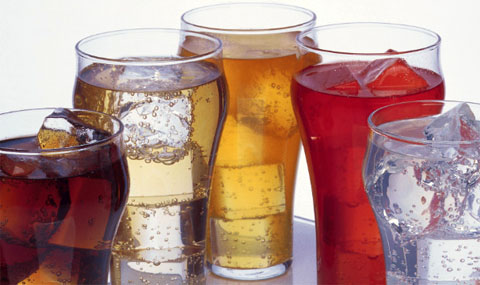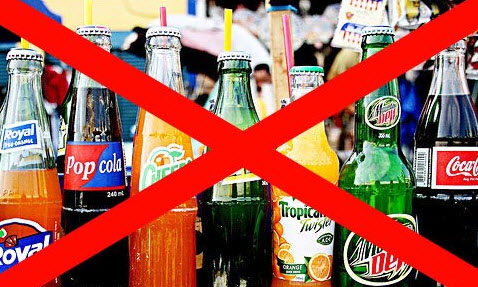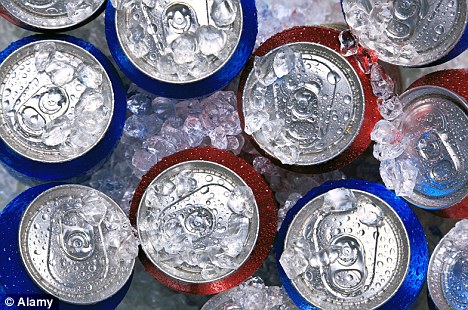現在位置 : 保健 > 養生之道 - 勿喝冰冷飲料 - Do Not Take Cold Drinks
|
(健康養生之道)
What is the ghostbuster of heart? 心臟最怕什麼? -- 冰冷的東西 另一個論點告訴你,不要喝冰水,不要吃冰,多吃熱的東西。 如果你要健康長壽,就該知道:心臟的<最大剋星>是什麼 ? 習慣於吃飯時或是飯後配冷飲嗎?很舒服、很爽,尤其邊揮汗大啖麻辣鍋、邊喝冰沙士,實在很有滿足感。如有這個習慣,請看看以下的介紹:心臟的最大剋星就是吃飯後,絕不喝冰涼的食物各界心臟病守專業醫生一致指示! 請您仔細閱讀並且把它轉寄給您的朋友! (冠狀動脈)心臟病發作∼喝溫開水 中國人和日本人吃飯的時候喝熱茶,而不是喝冰開水,我們應該學習中國人和日本人的飲食習慣。 吃過飯之後喝1杯冰冷的飲料,的確很舒服,然而,冷開水會使你剛剛吃下肚的油膩膩的食物凝結在一起,而且會使胃腸的消化作用變慢,一旦這1大坨像爛泥的東西碰到胃酸,就會分解而很快地被腸子吸引,它會附著在腸壁上,沒多久它就會變成脂肪,而導致癌症,所以說,吃過飯之後最好還是喝一碗熱湯或一杯溫開水。 Common Symptoms Of Heart Attack... (冠狀動脈)心臟病發作的一般徵兆請你特別注意: 並不是所有心臟病發作的時候都會左臂疼痛,你倒是要留意你頸項的劇烈疼痛。 心臟病發作的時候不一定會胸口疼痛,而噁心和猛烈的盜汗才是心臟病發作時常見的徵候,有60%的心臟病在睡夢中發作而患者因此一覺不醒,頸項疼痛常常會把你從熟睡中醒過來,所以要特別小心,我們懂得越多,活命的機會就越大。 一位心臟病專科醫生說,如果每一個讀到這個資訊的人都把它轉寄給十個朋友,至少可以救活一個人。 |
|
(以下網路資訊 僅供參考)
【6 種情況,不能吃冰】 (1). 用餐前兩小時或睡前,請不要吃冰冷的食物。 (2). 激烈運動﹑大量流汗之後,切忌立刻灌冷水或吃冰冷食物。 (3). 患有氣喘﹑冠心病﹑高血壓﹑胃炎﹑胃潰瘍或消化不良等疾病的人,應避免吃冰冷食物。 (4). 胃酸過多﹑胃潰瘍的人,應避免過酸的冷飲。 (5). 許多冷飲或冰品,都是高糖份、高熱量的食物,糖尿病或肥胖者應避免食用。 (6). 兒童、老人或婦女月經期間,應盡量避免吃冰冷食物。 備註 : 口渴時,勿嚼食冰塊來消暑,以免傷害牙齒。喝冷飲、吃冰品時,應緩慢食用,切忌狼吞豪飲,並注意清潔與衛生,以免吃壞肚子。 ◆ 【女性生理期的禁忌】 *生理期來時盡量少吃寒涼、冰冷食物 : 任何冰冷飲品、水梨、葡萄柚、柚子、椰子、橘子、硬柿子、山竹、蓮藕、菱角、綠豆、綠豆芽、莧菜、白蘿蔔、大白菜、金針菜、西瓜、苦瓜、黃瓜、絲瓜、冬瓜、茄子、蕃茄、筊白筍、蘑菇、紫菜、海帶、螃蟹、海螺、文蛤、鯉魚、鰻魚等。 |
|
A daily can of diet fizzy drink 'increases risk of heart attack or stroke'
● Those who drink diet soft drinks daily are 43% more likely' to have heart attack ● Carbonated drinks can cause long-term liver damage similar to that of chronic alcoholism By Daily Mail Reporter, 1 February 2012 Drinking just a single can of diet fizzy drink every day can increase the risk of a heart attack or stroke, research has revealed. The new findings have suggested that just a couple of daily cans of the supposedly 'healthier' carbonated drinks, such as lemonade or cola, can raise the risk of liver damage, as well as potentially causing diabetes and heart damage. Diet fizzy drinks are marketed as a healthy option, but in reality their health benefits over full-fat alternatives remain unclear. Researchers from the University of Miami, Miller School of Medicine and Columbia University Medical Center claim those who drink diet soft drinks are 43 per cent more likely to have heart attacks, vascular disease or strokes than those who have none. Previous analysis of soft drinks has shown that the soft drinks, which have a substantial amount of artificial sweeteners, can cause liver disease similar to that caused by chronic alcoholism. 'Diet' fizzy drinks are marketed as a healthy option in comparison to 'full fat' alternatives as they have fewer calories. But their genuine health benefits remain unclear, with some research suggesting they trigger people's appetites even more. Dr Hannah Gardener's research suggested 'an association between daily diet fizzy drink consumption and vascular outcomes' The U.S. research team studied the soft drink and diet soft drink consumption of 2,564 study participants over a 10-year period - along with their risk of stroke, heart attack and vascular death. They found those who drank diet soft drinks every day were 43% more likely to have suffered a 'vascular' or blood vessel event than those who drank none, after allowing for pre-existing vascular conditions such as metabolic syndrome, diabetes and high blood pressure. Ms Gardener said: 'Our results suggest a potential association between daily diet soft drink consumption and vascular outcomes. 'The mechanisms by which soft drinks may affect vascular events are unclear.' She added, however, that the mechanisms by which soft drinks may affect 'vascular events' are not clear, and that more research was needed into the subject before significant conclusions could be drawn about the health consequences of soft drink consumption. Diet soft drinks often contain artificial sweeteners like aspartame, which has been linked to other health problems such as cancer. However to date, heath watchdogs, including the UK's Food Standards Agency, have ruled out any link to ill-health. The latest study appears in the Journal of General Internal Medicine. |



